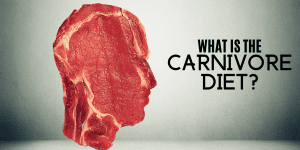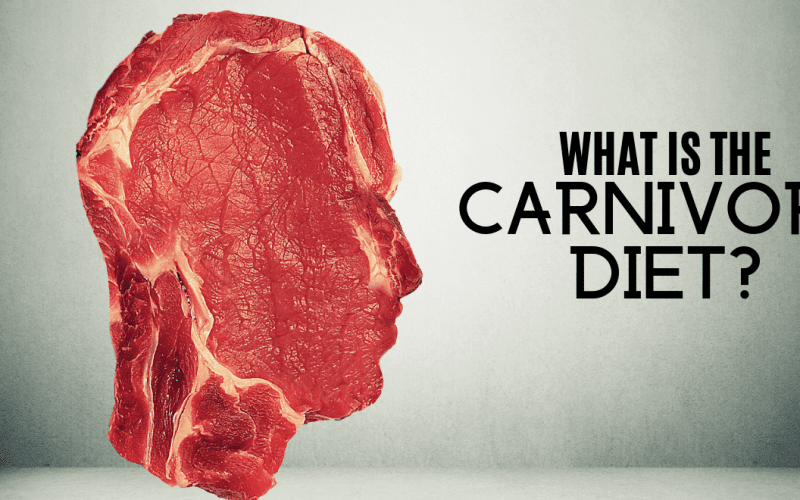The Carnivore Diet, a dietary regimen gaining popularity in recent years, represents an extreme end of the dietary spectrum, with an exclusive focus on animal-based foods. This diet involves the near-complete exclusion of plant-based foods in favor of meat, fish, and animal-derived products. In this article, we’ll provide an overview of the Carnivore Diet, emphasizing its principles, potential benefits, and considerations.
What is the Carnivore Diet?
The Carnivore Diet, often referred to as the “All-Meat Diet,” is a dietary approach that involves consuming animal-based foods exclusively. It is characterized by the omission of all plant-based foods, including fruits, vegetables, grains, legumes, and even certain plant oils. The primary sources of nutrition on this diet are:
- Meat: Beef, pork, lamb, and other types of meat serve as the cornerstone of the Carnivore Diet.
- Fish: Fatty fish like salmon, mackerel, and sardines are commonly included for their omega-3 fatty acids.
- Animal-Derived Products: This can include eggs, dairy (if tolerated), and animal fats such as lard or tallow.

https://www.daimanuel.com/wp-content/uploads/2019/09/what-is-the-carnivore-diet-2.png
Principles of the Carnivore Diet
The Carnivore Diet operates on several fundamental principles:
- Elimination of Plant-Based Foods: The primary tenet is the complete exclusion of plant-based foods. Vegetables, fruits, grains, and legumes are considered off-limits.
- Focus on Animal Nutrition: The diet emphasizes the nutritional value of animal-based foods, claiming that they provide all essential nutrients, including vitamins, minerals, and fatty acids.
- Zero Carbohydrates: As a result of excluding plant foods, the diet is virtually carbohydrate-free. This eliminates the need for dietary carbohydrates for energy.
- High Fat and Protein: Meat and animal products are rich in both fats and proteins, constituting the primary macronutrient sources.
Potential Benefits of the Carnivore Diet
Advocates of the Carnivore Diet claim that it offers several potential benefits:
- Weight Loss: Some people experience weight loss on this diet, primarily due to reduced calorie intake and the absence of carbohydrates.
- Simplicity: The diet is straightforward, with no complex meal planning or tracking required.
- Improved Digestion: For some individuals, eliminating plant-based foods may alleviate digestive issues like bloating, gas, and irritable bowel syndrome (IBS).
- Mental Clarity: Advocates argue that the diet can improve mental clarity and focus, although scientific evidence is limited in this regard.
Considerations and Potential Risks
The Carnivore Diet is highly restrictive and may not be suitable for everyone. It comes with several considerations and potential risks:
- Nutrient Deficiencies: The diet lacks essential nutrients found in plant-based foods, such as fiber, vitamin C, and certain antioxidants. Over time, this may lead to deficiencies.
- Digestive Challenges: Some individuals may experience constipation or other digestive problems due to the absence of fiber and carbohydrates.
- Long-Term Health: The long-term health effects of the Carnivore Diet are not well-studied, and concerns have been raised about the potential risk of heart disease and certain cancers due to high saturated fat and red meat consumption.
- Sustainability: From an environmental perspective, the Carnivore Diet is not sustainable due to its high demand for animal products, which can strain resources and contribute to climate change.
Consultation with a Healthcare Professional
Before embarking on the Carnivore Diet or any extreme dietary regimen, it is advisable to consult with a healthcare professional or a registered dietitian. They can provide personalized guidance, monitor your health, and ensure that you are meeting your nutritional needs adequately.

Conclusion
The Carnivore Diet is a unique and restrictive dietary approach that focuses exclusively on animal-based foods while excluding all plant-based items. Advocates tout its potential benefits, but it comes with several considerations and potential risks. It is essential to approach this diet with caution, seeking professional advice and considering its long-term sustainability and health implications.












